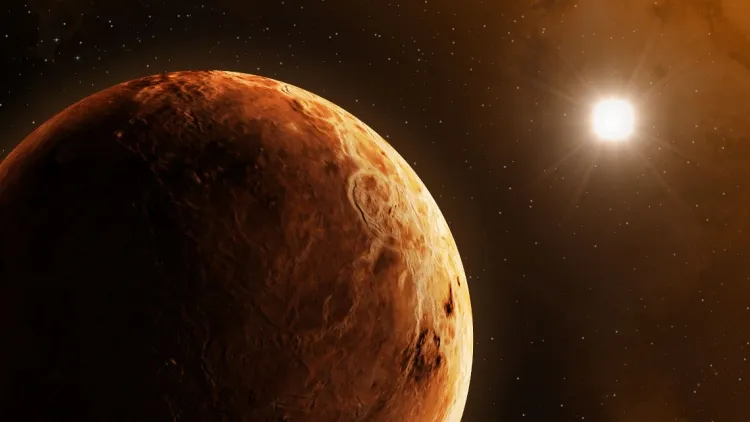Could There Be Life in Venus’s Clouds? A New Study Sparks Fascination
Venus, often overshadowed by Mars in the search for extraterrestrial life, is one of the most extreme planets in our solar system. With a surface temperature of 461°C, a dense carbon dioxide-rich atmosphere, and crushing atmospheric pressure 90 times that of Earth, Venus is frequently described as a hellish world. However, a new study suggests that its clouds might hold the key to potential microbial life.

A New Perspective: Photosynthesis in Venus’s Clouds?
The study, published in the journal Astrobiology, proposes that Venus’s clouds may offer suitable conditions for photosynthesis. On Earth, photosynthesis played a crucial role in the formation of life by producing oxygen and supporting microbial ecosystems. Scientists believe that if a similar process could occur on Venus, it could provide an environment where microbes could survive and thrive.
Why Venus’s Clouds Matter
- The thick cloud layers could absorb harmful UV radiation, providing a level of protection similar to Earth’s ozone layer.
- The atmospheric conditions may allow for photosynthesis even at night, unlike on Earth where it largely depends on sunlight.
- Microbes, if present, could utilize light and chemical energy sources to sustain themselves.
Expert Insights: A Promising Target for Future Missions
The study’s lead author, Rakesh Mogul, a biochemistry professor at California State Polytechnic University Pomona, emphasized that Venus’s clouds should be a priority for life-detection missions. Scientists have long speculated about the presence of phosphine, a potential biomarker, in Venus’s atmosphere. This new research strengthens the case for further exploration.
How Could Future Missions Explore Venus?
- Balloon-based observatories could hover in the cloud layers to analyze atmospheric conditions.
- Orbiters equipped with advanced sensors could scan for organic compounds and microbial life indicators.
- Landers (if technology allows) could attempt short-duration missions to study Venus’s extreme environment.
The Bigger Question: Could Life Exist on Venus?
While this study does not confirm life on Venus, it adds to the growing scientific curiosity about whether microbial organisms could survive in extreme conditions. If life exists—or once existed—in Venus’s clouds, it would reshape our understanding of habitability beyond Earth.
What’s Next?
NASA and other space agencies are considering future missions to Venus, such as VERITAS and DAVINCI+, to explore its atmosphere and surface in greater detail. These missions could provide critical insights into Venus’s climate history, atmospheric composition, and potential for life.
Conclusion
The possibility of microbial life in Venus’s clouds is an exciting frontier in astrobiology. As space agencies ramp up their efforts to explore the planet, we may soon have concrete answers about whether life exists beyond Earth—not on Mars, but in the skies of Venus.
Do you think Venus could harbor life? Let us know your thoughts! Stay tuned for more updates on space exploration and the search for extraterrestrial life.
What's Your Reaction?

















